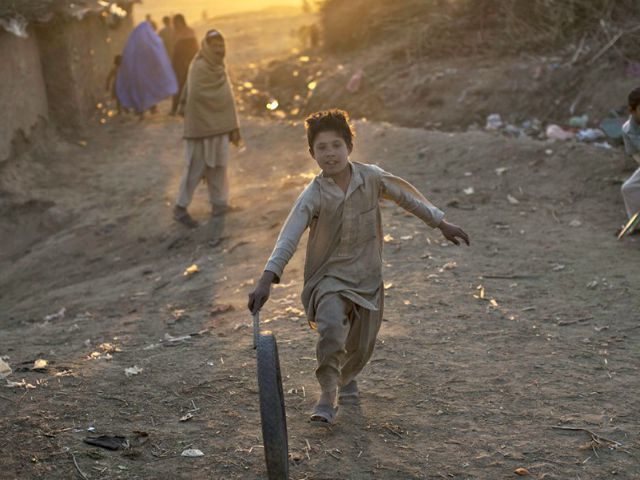American service members in Afghanistan have relatively recently been officially required to report when U.S. taxpayer-funded Afghan security forces sexually abuse young boys, but they are “not obligated” to intervene and may be criminally punished for doing so, according to an audit by the Pentagon inspector general (IG).
Moreover, one American service member told that the IG U.S. troops were told to “ignore” the ancient pedophilic Afghan custom known as bacha bazi, or “playing with boys,” confirming the findings of a New York Times (NYT) article issued in September 2015.
The IG notes that reporting the incidents is necessary when a soldier actually observes child rape, and the soldier can intervene at that moment. Any action taken outside of actually witnessing the crime could result in disciplinary action.
“There’s no recourse to stop them from bacha bazi. Soldiers [were] told to ignore it and drive on,” said the service member.
Referring to the chain of command, another U.S. troop told the auditor, “The initial reaction of the staff was ‘we don’t really care about this, and we’re not going to do anything about it.'”
The audit suggested that, prior to the September 2015 implementation of explicit guidance declaring the sexual abuse of children at the hands of the Afghan National Defense and Security Forces (ANDSF) a gross human rights violation, American troops were confused about whether such acts were wrong, tolerated, and reportable to the chain of command.
In responding to the IG’s report, the Pentagon claimed U.S. troops have always been aware of the despicable nature of sexually abusing children, adding that DOD “strongly condemns” the practice.
Although U.S. troops are required to report allegations of sexual abuse, the IG found the records to be incomplete.
“As a result, there is no certainty that [U.S. Forces-Afghanistan] received notification of all allegations of human rights violations, including sexual abuse involving ANDSF personnel,” noted the DOD IG.
Under the Leahy Laws, the United States cannot provide any funding assistance to foreign security forces deemed to have committed gross human rights violations, such as the sexual abuse of children.
In other words, had the Pentagon officially identified child sexual abuse as a human rights violation before September 2015, the U.S. would have been required to cut funding for the ANDSF, which has reached an estimated $70 billion since the Afghanistan war started in 2001.
The centuries-old Afghan practice of bacha bazi involves selling boys — also known as “chai tea boys” — to wealthy and powerful men for entertainment and illicit sex, explained the U.S. Inspector General for Afghanistan Reconstruction (SIGAR), a separate watchdog agency from the Pentagon IG.
In June 2016, Agence France-Presse (AFP) learned that the practice might place the lives of U.S. troops at risk, noting that the Taliban exploits the Afghan security force’s affinity for child sex slaves to penetrate Afghan bases and use boys to launch deadly attacks.
Nevertheless, not only are U.S. troops not required to intervene when an ANDSF member rapes a child inside a base they share with Americans, their superiors may reprimand them for taking any action.
The IG for the U.S. Department of Defense (DOD) explained:
Under DOD Law and consistent with bilateral and international agreements governing U.S. operations in Afghanistan, U.S. Forces who observe a member of the ANDSF sexually abusing a child are not prohibited from intervening and using reasonable force as may be necessary to prevent or stop such sexual abuse. However, U.S. Forces are under no obligation to intervene.
…
We note that intervention and, if necessary, use of force to stop such an assault is dependent on actually observing the abuse or assault in question. Such action would not be appropriate based on others’ assertions, allegations, of complaints of alleged abuse.
The inspector general later acknowledges that an American service member who intervenes or uses force against an ANDSF child rapist outside of catching them in the act of raping a child “could be subject to possible allegations of criminal misconduct (e.g., assault) resulting from the use of force during the intervention.”
However, the responsibility to punish the U.S. service member falls on American authorities, not the Government of the Islamic Republic of Afghanistan (GIRA).
The U.S. military has already punished American troops who have used force against Afghan child rapists — marking its nonintervention policy.
It was not until September 2015 that the top commander of U.S. and NATO troops in Afghanistan explicitly mandated that DOD personnel report allegations of child sexual abuse to their chains of command.
Prior to that date, the Pentagon did not officially consider child sexual abuse by the ANDSF troops, which includes police and military units, as a human rights violation.
Although troops are ordered to report child rapists, there is still is no specific Pentagon instruction for how U.S. troops should notify their superiors about gross violations of human rights (GVHR).
It added:
We recommend that the Commander, United States Forces–Afghanistan establish more detailed procedures for DoD affiliated personnel in Afghanistan to report allegations of child sexual abuse committed by ANDSF personnel, and other human rights violations, including procedures that verify [U.S. Forces-Afghanistan] receives such reports.
Despite the specific command guidance to report the Afghan troops’ involvement in the abhorrent act of bacha bazi, the Pentagon IG found the records are unreliable and inconsistent.
The number of alleged reports ranged from 10 to 300, but DOD IG insisted, “We were unable to confirm the completeness and accuracy of information maintained on allegations of child sexual abuse involving ANDSF personnel being tracked by the DOD.”
SIGAR reported that the practice was punishable by death under the Taliban regime, but powerful men “resurrected” it after the U.S. military dethroned the terrorist group in 2001.
Although Afghanistan has enacted laws that punish sexual abuse of children, it is unclear to what extent Kabul authorities are enforcing the statue.

COMMENTS
Please let us know if you're having issues with commenting.